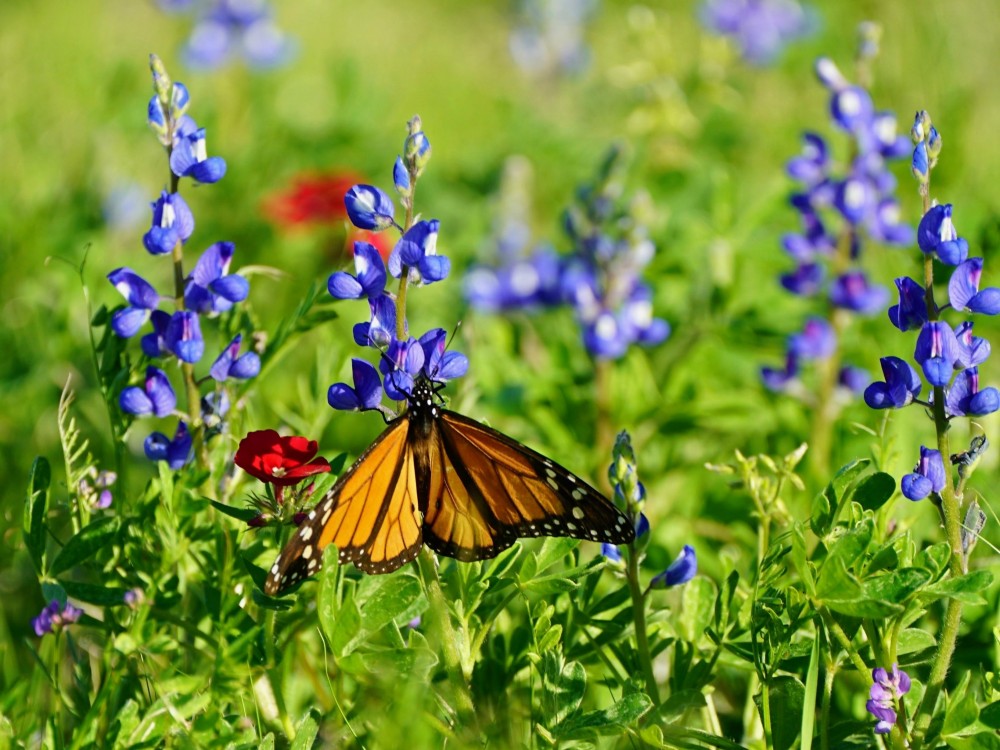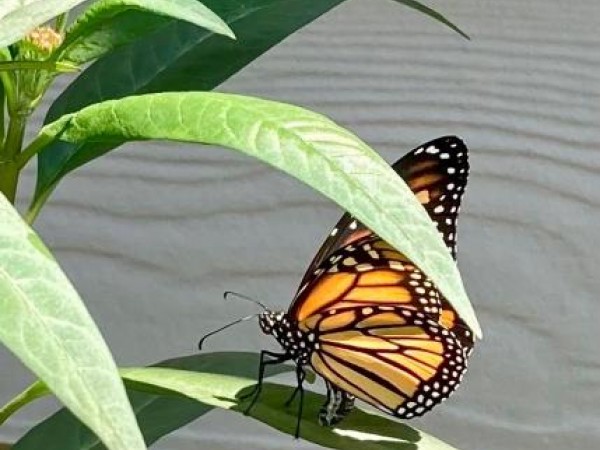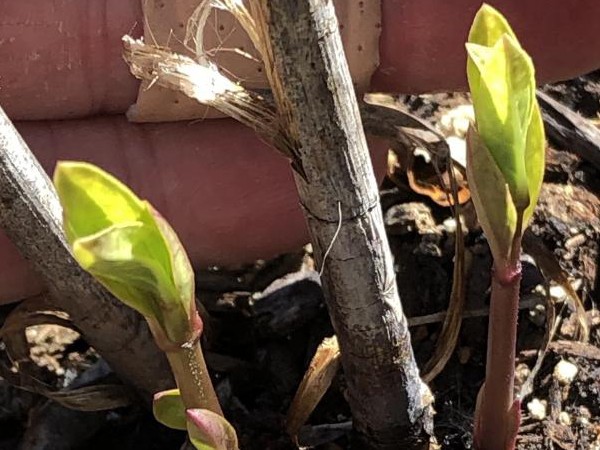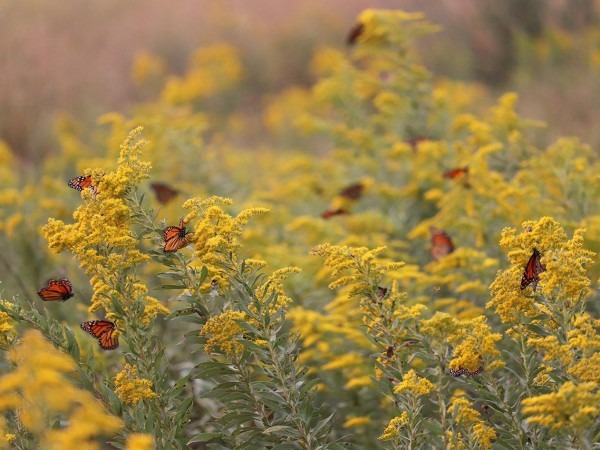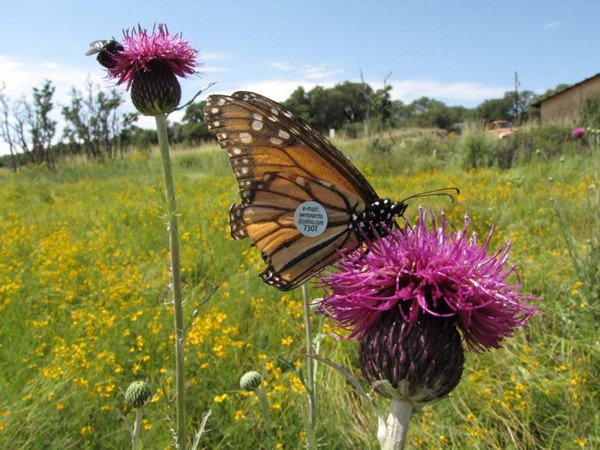Almost April
Eastern Monarch Population
Letter from Estela Romero: Departures Continue and Remaining Monarchs Draw Concern
To the surprise of many, a sizeable portion of the El Rosario and Río Grande monarch colonies have yet to depart. Estela Romero shares that this is creating a feeling of anxiousness for local experts. She writes, "This remaining population of monarchs keep experts seriously concerned. The monarchs don’t seem to be in a hurry to start their long journey north as the temperatures reach 22 to 25 degrees Celsius . . . Blooming flowers are less abundant. The weather is dry and already very hot. Temperatures continue to rise. The journey north promises to be long and exhausting."
However, Estela also reminds us that monarchs have remained into late March in the past. She says, "During one of the last years when Dr. Lincoln Brower was still with us, monarchs left their overwintering spots in April 2-4. This year might be a repeat of this pattern."
Read more of Estela Romero's Letter: Departures Continue and Remaining Monarchs Draw Concern»
Leer más de la carta de Estela Romero: Salida Gradual Dentro de esta Demora Preocupante»
Update from Correo Real
Monarchs that are yet to depart may face difficult conditions in Mexico. Here's the latest from Rocío Treviño and our partners at Correo Real:
"On March 23 and 24 there was another important passage of monarchs through the state of Tamaulipas, but for three days they have not been reported from that state and only a few reports have been received from Nuevo León and Coahuila. The hibernation season ends in Mexico and this is the last weekend that the sanctuaries are open to the public. Unfortunately fires are occurring at various points on the return route, let us pray to heaven to send us the long-awaited rain and end this prolonged drought …"
Eastern Monarch Spring 2022 Report #2
Progress has slowed since last week’s update. This is no surprise as migration can be a stop-and-go journey with wind and weather in control. On the northern edge, there were a few more reports in Oklahoma and Arkansas. On the eastern edge, monarchs are making their way up the South Carolina coast.
Also, keep your eye on where milkweed has emerged. Is milkweed growing fast enough to keep up with the pace of migration?
Read more of the Eastern Monarch Spring 2022 Report #2»
Western Monarch Population
Letter from Gail Morris: Western Monarch Spring 2022 Report #2
In the Western U.S., it's the time of season where sightings can drop off as monarchs make their way from the California coast and travel across vast, open spaces to breeding territories. Gail Morris writes, "The time has finally come for monarchs to leave the California coast and spread their wings to recolonize the West. Sighting reports become scarce as they disperse far and wide, mating and laying eggs as they go. This week’s reports were centered in California as monarchs were seen migrating east from the coast. New shoots of emerging milkweed are also appearing to greet them on their journey."
Read more of Gail Morris' Letter: Western Monarch Spring 2022 Report #2»
Keep Reporting and Include Photos
During this early period of migration, it can be difficult to distinguish between a migrating monarch and an overwintering monarch. Not all migrating monarchs have faded and tattered wings, complicating things even more. Please share if you think you’ve observed a migrating monarch or a winter resident. If you’re uncertain, please let us know.
And if possible, please include photos in your reports (one photo per report). Monarchs can be difficult subjects to photograph. One potential workaround is to take a video and then extract a screenshot to use as a photo. Give it a shot!

